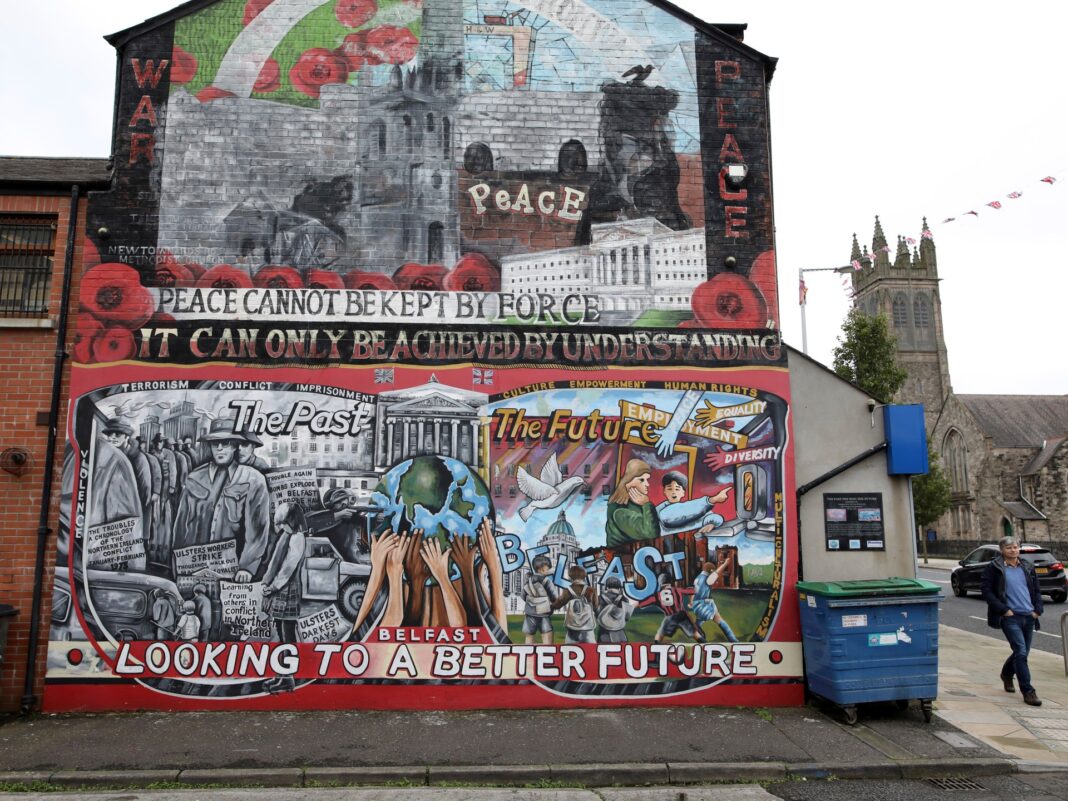Ireland to argue that aspects of the UK law are incompatible with its obligations under the European Convention on Human Rights.
Ireland says it will mount a legal challenge against the United Kingdom over a new law that gives some immunity from prosecution for offences committed during three decades of sectarian violence in Northern Ireland.
Irish Deputy Prime Minister Micheal Martin said on Wednesday that “after much thought and careful consideration”, his government is launching a legal challenge against the Legacy and Reconciliation Bill, which critics say shuts down access to justice for victims and survivors.
The law, passed in September, stops most prosecutions for alleged killings by armed groups and British soldiers during the Troubles, the three decades of violence in which more than 3,500 people died.
Many groups on the island of Ireland are vehemently opposed to the new law, including victims’ families, human rights organisations and all major political parties.
Martin said Britain had not properly engaged with people affected by the law before passing it.
“The British government enacted this legislation on September 18, 2023, shutting off any possibility of political resolution,” Martin said. “We now find ourselves in a space where our only recourse is to pursue a legal path.”
Irish Prime Minister Leo Varadkar said the case would be taken to the European Court of Human Rights in Strasbourg, France. Ireland plans to argue that aspects of the law are incompatible with the UK’s obligations under the European Convention on Human Rights.
The United Nations and the Council of Europe have backed Ireland’s position, Varadkar said.
“It is something that we’re genuinely doing with a sense of regret and would prefer not to be in this position, but we did make a commitment to survivors in Northern Ireland and to the families of victims that we would stand by them,” he said.
The Troubles – a conflict over British rule in Northern Ireland – pitted Irish nationalist armed groups seeking a united Ireland against pro-British “loyalist” paramilitaries and the British military. It eventually came to an end in 1998 through a peace deal.
About 1,200 deaths from that time remain under investigation, according to the UK government.
Victims’ families have already been challenging the new law in the Northern Ireland courts.
Amnesty International Northern Ireland Deputy Director Grainne Teggart said the Irish government’s pushback is essential.
“The U.K. government doggedly pursued this legislation which shields perpetrators of serious human rights violations from being held accountable. It’s important that the Irish government takes this stand,” she said.
“This challenge is vital for victims here and around the world who face the prospect of similar state-gifted impunity,” Teggart said.







